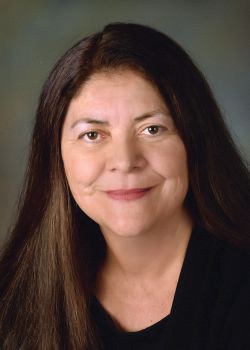I think a lot of people my age spent most of their reading time growing up with big-name, young-adult fiction series, like Harry Potter, Hunger Games, Maze Runner, Eragon and Uglies.
When I picked up Ana Consuelo Matiella’s book “The Truth about Alicia,” I found a gem of a completely different kind than I was used to. I recommend this book of short stories to anyone wanting to step away from mainstream reading, or anyone interested in genuine human stories.
The masterpiece of this book is the title story, which I will focus on here. “The Truth about Alicia” is a roughly 10-page story about a woman named Alicia who just murdered her husband, told from the perspective of Robert, a Nogales police officer who has a lot of sympathy for Alicia, mostly deriving from his past experiences with her.
What makes this story special, in my opinion, is the third person narrator. She seems to have little knowledge of what the characters are thinking, but full knowledge of what they do and would have done. Through her telling of the story, we can learn about the characters’ personalities and feelings in the way that we figure out people in daily life: by seeing them act, hearing them speak and hearing others speak about them.
For example, I felt so much respect, sadness and worry for Robert by the end of the story that I wanted to hug him, even though he probably doesn’t exist. Authors generally can’t evoke this response from readers in an entire novel, much less a couple pages.
I built up my “relationship” with Robert only by seeing what he did in the story. He sat with Alicia at basketball games in high school when she didn’t have a date. He danced with her at a friend’s wedding. He placed his hand on Alicia’s back as she vomited after leaving the house where she murdered her husband. He uncuffed her hands when she wanted to pray to the Virgin. I knew his kindness, and I could see his friendship (and love!) for Alicia.
This story reads like Matiella knows the characters. She probably does, at least figuratively. She grew up in “both Nogaleses,” where the story takes place.
In an interview with Meg Tuite, when asked about advice for aspiring writers, she responded, “see those people walking by your house every day? Each one of them has a story. You could write those stories.”
She writes about the kind of people we see every day, and the struggles that we know. We feel sadness that Robert’s love for Alicia does not work in the opposite direction. We hurt when we hear Alicia talk about how none of her family listened to her, and instead called her crazy. We understand uncertain futures and grief for broken friends. In so few words, Matiella explains so many truths about life.
Before you grab the book right now, I’ll warn you about a few minor problems. First, some sections feel unpolished. Certain sentences feel clunky, some actions feel rushed and some parts (like Robert’s thoughts about the movie “Gaslight”) feel unnatural. These don’t diminish the power of what Matiella writes, however.
Second, for people who read a lot ‘simple’ prose (like Hemingway or Orwell, and those resembling them) the way Matiella writes might not be as fresh for you as it was for me. It’s written in a way that my UA English professors are teaching me how to write, so it’s not necessarily unique. Yet its style is much better than many of the best-sellers you might find on shelves today.
If you can handle that, I highly recommend experiencing the pleasure of the book for yourself.
If you’re really fascinated, you can meet the author, too, at the Tucson Festival of Books. She’ll be speaking at the Pima County Public Library presentation stage from 2:30-3:30 on Sunday, March 11.









